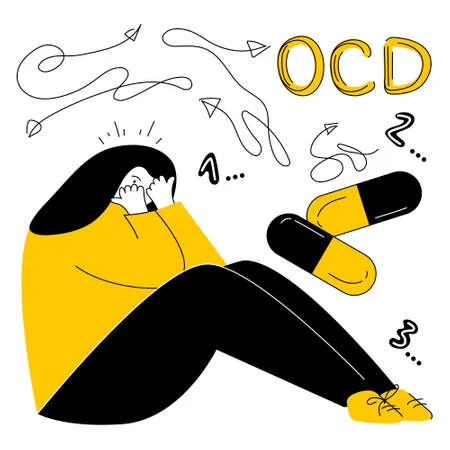Do you remain over conscious towards maintaining personal hygiene and other routines? OCD is an anxiety disorder marked by uncontrollable, recurrent, upsetting thoughts (obsessions) and/or ritualistic behaviors (compulsions). Unwanted, intrusive thoughts that cause stress and anxiety are called obsessions. Obsessive-compulsive disorder (OCD) can adversely impact your overall health and personal life.
Signs that you have OCD
Symptoms gradually appear and the person experiences the symptoms of obsessions or compulsions. The symptoms might also interfere with life normal functioning such as-
- Repeatedly washing your hands and cleaning
- Frequently ensuring that doors are locked
- Counting in specific patterns
- Keeping things in order by turning them all the same way
- Repeating a word, phrase, or a prayer out loud
- Requesting assurance
Causes of OCD
Evident causes of OCD are not known yet. But, experts agree to the fact that below factors might be the possible reasons for OCD.
1. Biological factors: One theory describes that OCD occurs due to a breakdown in the circuit in the brain. If you are suffering from this disorder then your brain may find it difficult to decide what kinds of thoughts are to be turned off and what not. Accordingly, you might either experience obsessions or compulsions.
2. Family history: Family history also plays a major role in suffering with this disorder. Studies have found that if your mother/father suffers with OCD then there are more chances for you to suffer with the same mental health problem.
3. Genetics: One single gene is responsible for OCD.
4. Stress: Stress occurred due to unknown or known reasons, relationship difficulties, problematic school life, certain types of illness might trigger symptoms of OCD.
Not attending to your OCD early can make you uncomfortable with everyday situations, which may hamper your daily lifestyle & social interacting capabilities. OCD can be too controlling, leading to painful thoughts such as close ones being harmed.
Tips to overcome OCD
- Exercise is the best treatment for OCD, according to research. It assists you in managing your daily stress and anxiety as well as in regaining your focus after being distracted by all the negative thoughts brought on by your obsessive-compulsive disorder.
- Having a good sleeping routine is very necessary to live a happy and peaceful life. It can also help you to deal with OCD.
- Keep in touch with the people who care about you and who adore you. When you talk about your issues with those who are closest to you, you will find the strength to handle them.
- Your life can become completely consumed by obsessions and compulsions, leaving you feeling powerless. You can, however, try a few things to help manage your OCD and enhance your wellbeing.
Always keep in mind that different things will work at different times for different people. At Solh Wellness our mental health professionals are qualified to evaluate psychological problems' and provide you with the best tools and solutions.
Stop Worrying and Start Living!



